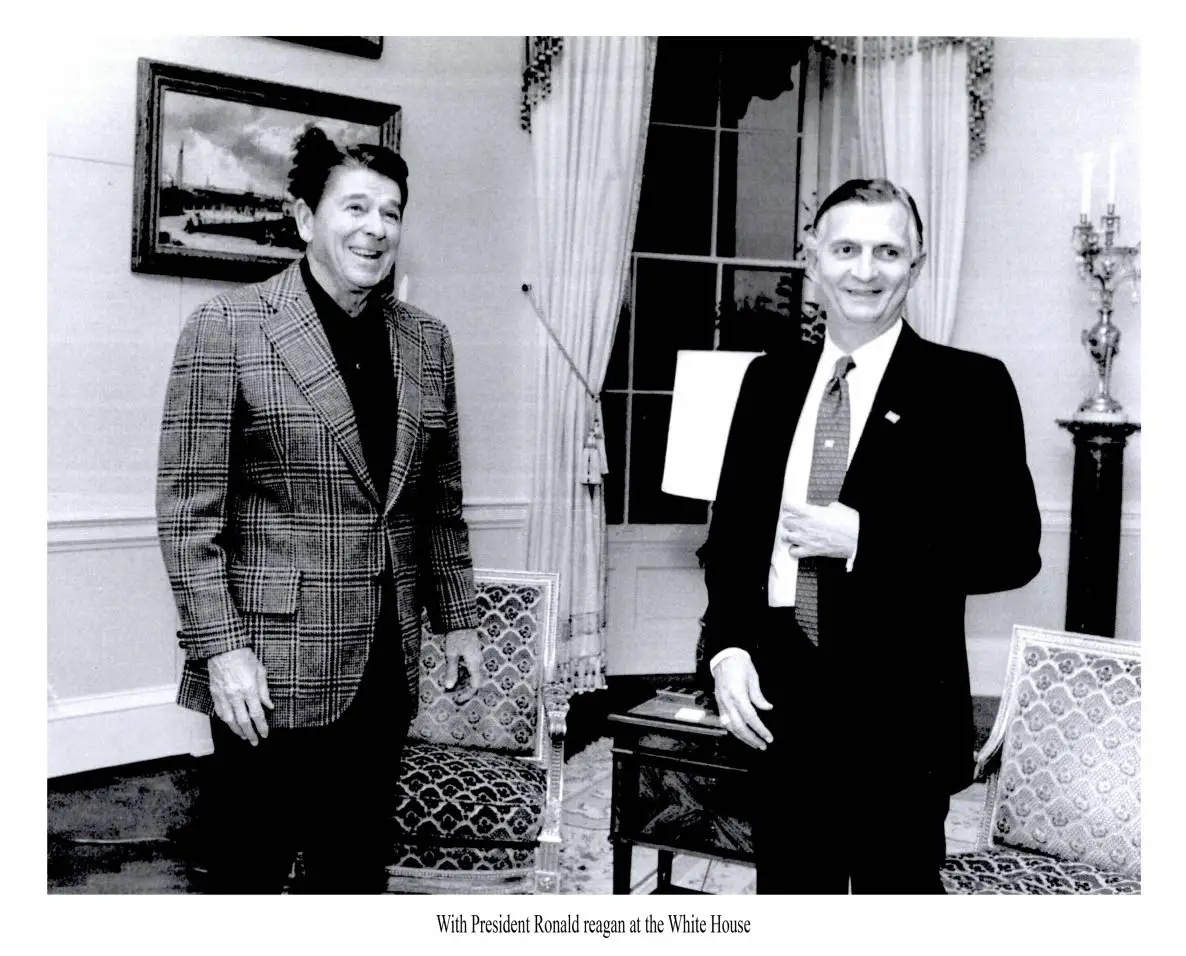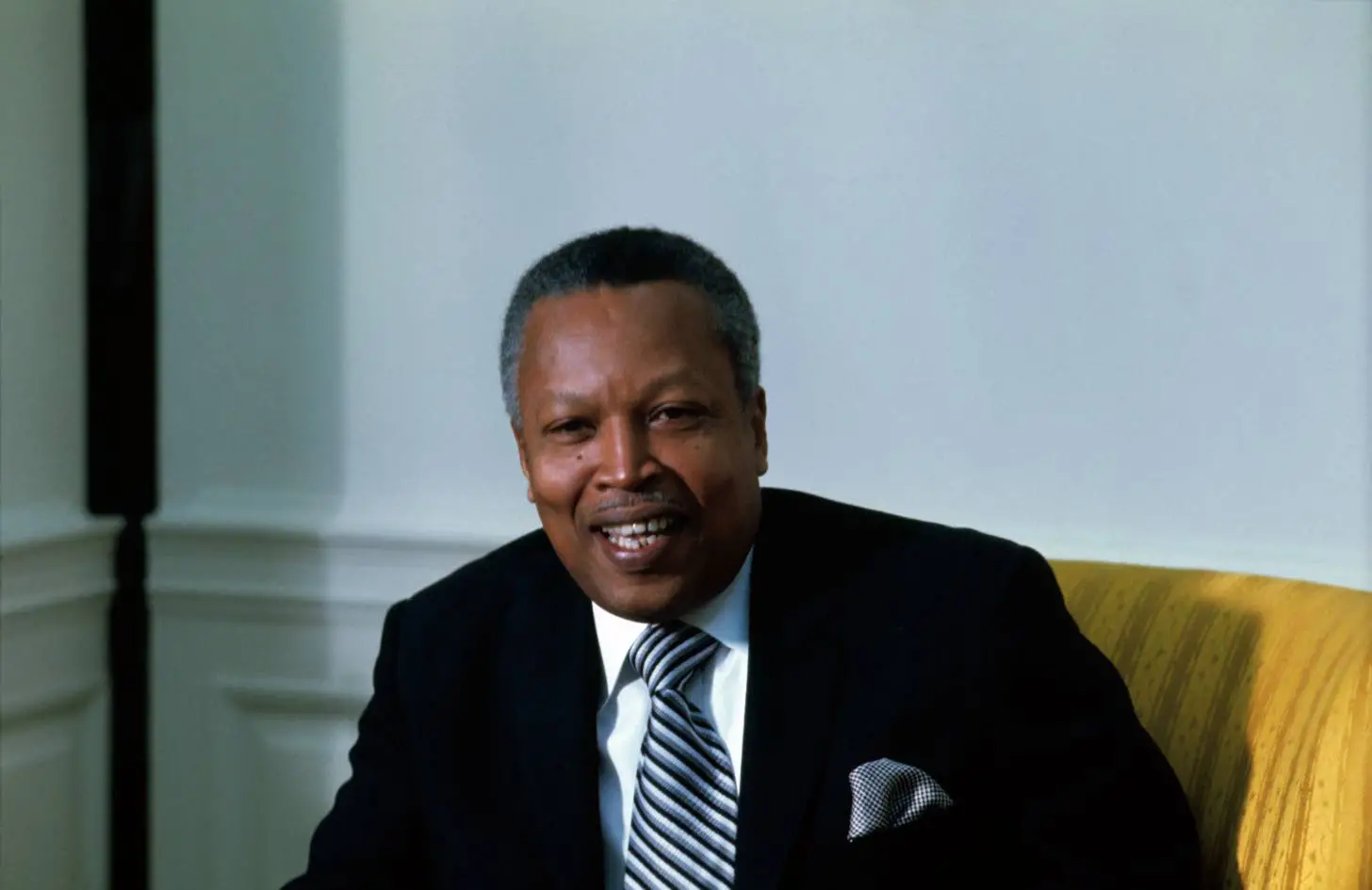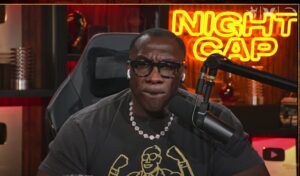
Seaga had planned to step away from politics, but…
Three weeks before its 31st annual conference in November 1974, the Jamaica Labour Party (JLP) was searching for a leader. Former Prime Minister Hugh Shearer, who had led the organisation since 1967, announced that he had no interest in continuing in the post.
Edward Seaga was seen as the front-runner to replace him. Minister of finance and planning in Shearer’s Cabinet from 1967 to 1972, Seaga had announced in late 1973 his plan to step away from politics.
But on November 23, 1974 at the National Arena, Seaga was unanimously elected to lead the JLP. The Member of Parliament for Kingston Western, he received 2,052 votes to St Andrew South Western MP Wilton Hill’s 97 votes.
Frank Phipps defeated fellow attorney Ian Ramsay 1,472 votes to 550 for the role of first deputy leader.
Pearnel Charles, then an Opposition senator, said Shearer had no interest in leading the JLP after its crushing defeat to the People’s National Party (PNP) in the 1972 General Election. Seaga, who was a minister in the administrations of Sir Alexander Bustamante and Sir Donald Sangster, seemed the logical successor.
“Shearer wanted to leave after the 1972 election and he wasn’t going to fight people, because there were other popular guys like Seaga,” Charles told the Jamaica Observer.
While Shearer had lost interest in leadership, he had considerable support among the JLP’s trade union membership. He was a protégé of Sir Alexander, founder of the Bustamante Industrial Trade Union, of which Charles, and fellow JLP young turks Errol Anderson and Cliff Stone were members.
Charles believes Shearer’s working-class image did not endear him to the JLP hierarchy.
“Shearer was a trade unionist from ‘Busta’ days and he had us behind him, but the upper middle-class saw Seaga as a white man, brown man. He [Seaga] was a man who understood how to play his cards… he knew what to say and when to say,” Charles said.
Seaga, 44 at the time, had a vastly different upbringing from Shearer. He was born in Boston, Massachusetts, to a Lebanese-Jamaican father and Jamaican mother, who returned to Jamaica in his childhood. After graduating from Wolmer’s Boys’ School, he attended Harvard University where he earned a degree in social sciences.
In 1962, he was elected MP for Kingston Western and appointed minister of development and welfare. In December 1973 as the JLP struggled to find its footing one year after a demoralising defeat to the PNP, Seaga declared his intention to step away from politics and spend time with his family.
When Shearer made it official that he would not return as JLP leader, Seaga seemed the natural successor. Contrary to popular perception, Charles said the two men “had a good relationship, no problems” at that time.
Hill, minister of public utilities and housing in the Shearer Administration, was the other challenger to replace him.
During his maiden speech to Parliament as Opposition leader in December, Seaga hailed Shearer who was first elected to the House of Representatives in 1955.
“We on this side are extremely gratified to see that he has chosen to remain within the parliamentary system and that he will continue to make his skills and great capacity as a parliamentarian available to us,” he said.
The JLP were soundly defeated by the PNP in the December 1976 General Election. Four years later when Seaga led his party to a resounding victory, he was sworn in as Jamaica’s fifth prime minister, with Shearer named deputy prime minister and minister of foreign affairs and foreign trade.
Returning to power in a controversial snap election the PNP did not contest in 1983, Seaga and the JLP were defeated in the 1989 election by a resurgent Michael Manley-led PNP. Losses in national polls in 1993, 1997, and 2002 tarnished Seaga’s image and he retired from politics in 2005 at age 75.
Seaga died in May 2019 at age 89.
Shearer retired from politics in 1993 after losing his Clarendon Southern seat in Parliament. He died in 2004 at age 81.
Now 89, Charles served as MP, government minister and Speaker of the House of Representatives before retiring from politics in 2020. He has differing views on Seaga, with whom he had several clashes, and Shearer, his former mentor.
“Shearer, to me, is one of the best politicians Jamaica produced. He wasn’t into war, he was a negotiator, who didn’t have the will to stand up to the brown class, the middle-class and the money class,” he said. “As for Seaga, we all supported Eddie even when we knew it wasn’t working. But we were afraid to tell him because none of us had the support he had.”


























